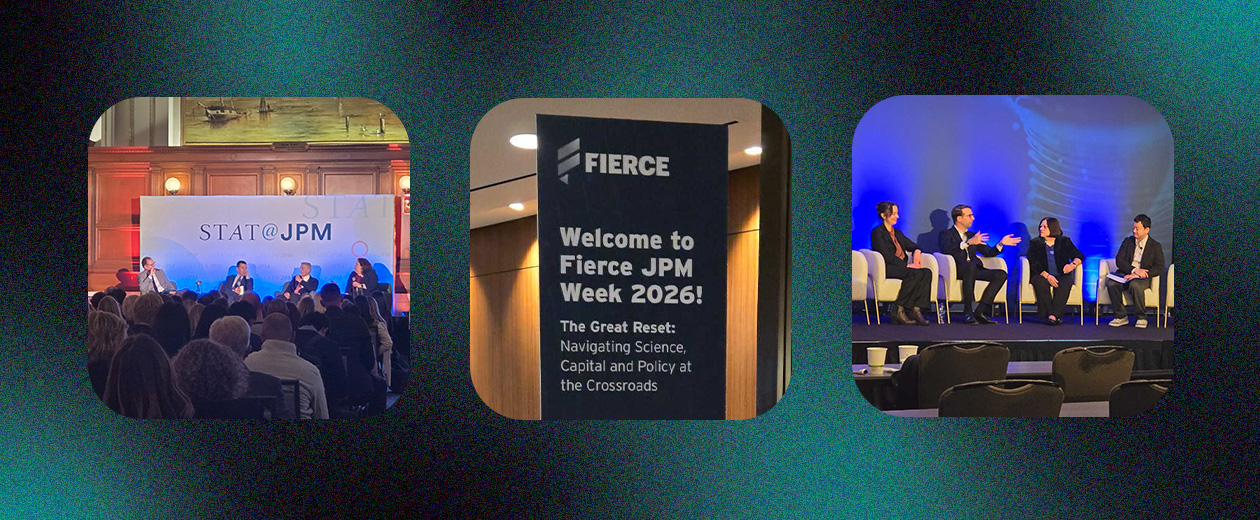
February 2, 2026
February 2, 2026

Reading time
July 10, 2024
October 17, 2022

Tonya Gayle, Executive Director of non-profit Green City Force, has dedicated her career to mobilizing young people to make a difference in their communities. Her role at GCF positions her at the intersection of sustainability and socio-economics.
Founded in 2009, GCF engages young Black, Indigenous and People of Color (BIPOC) from public housing in New York City to advocate for sustainability and environmental justice. The AmeriCorps organization focuses on training youth and implementing long-term change to create a more just society where eco-literacy and its connection to equity take center stage.
“Our mission is to train young leaders to power a green and inclusive economy through service,” Tonya said. “We regard ourselves as a movement of change driven by community, tied to liberation and equity, and centering young people as the drivers of that change.”
Prior to becoming Executive Director at GCF in 2020, Tonya spent six years leading GCF’s development and fundraising work. Her previous roles include working at the New York City Housing Authority (NYCHA) in the community programs and development department.
I was particularly excited to talk recently with Tonya since Mission North colleagues volunteer at GCF as part of our E3thos corporate social responsibility program. She shared with me some of her thoughts on eco-literacy and environmental justice (EJ) as well as advice on how to best partner with GCF. What follows is an edited version of our conversation:
<split-lines>"Young people from the hardest hit EJ communities are the most appropriate ones to lead the conversation on eco-literacy because it’s tied to their futures..."<split-lines>
One misconception I’ve seen is the belief that everyone has readily available opportunities to contribute to a green society. The pursuit of sustainability or wellness are often tied to socio-economic status.
On a personal level, I’ve always believed in the power of youth. When I came to GCF, it became very clear that young people do have the energy, talent and potential to be sponges. Young people from the hardest hit EJ communities are the most appropriate ones to lead the conversation on eco-literacy because it’s tied to their futures and they have proven their capacity to achieve it in the same way affluent communities do.
Our model at GCF rests on the concept of ‘love where you live.’ Youth from public housing communities have to think about access to food, paying for rent, finding healthcare, safety and survival, not to mention the systemic racism and poverty they face. It’s not surprising that the first thing that comes to mind for them is not sustainability, it’s how to put one foot in front of the other.
At GCF, our young people are the ones knocking on doors and saying to other residents ‘You should consider sustainability as it’s tied to preserving the housing you’re currently living in and can support the wellbeing of our community.’
As AmeriCorps members, youth spend four days a week in service, planting food, recycling, composting, hosting farm stands and engaging with other residents. One day a week, they are in Green City Academy, an indoor class that involves training and professional development. Our program allows them to gain practical experience while seeing the success of their work in real-time.
We position recruitment as an invitation to help address real issues in their community related to environmental justice. A lot of young people are also coming into our program for the opportunity to receive income and to have their transportation costs for moving around the city covered. We offer youth employment, training and a way to move forward in their lives as emerging adults.
<split-lines>"We don’t take ‘cream off the top.’ We want everyone to have the same opportunities."<split-lines>
We mean it when we say that GCF seeks to ‘center’ young people. We started the program in 2009. Based on yearly feedback from people in the program, it became clear that if we wanted to continue being genuine in providing 360-degree support, we needed to be intentional about recognizing the issues they are facing.
We have implemented a trauma-informed approach at GCF. We are aware that we can’t provide everything, but we do the due diligence to understand the reality of every participant's situation, their potential to succeed at this point in time based on their life experiences, their current personal obligations and their capacity to push themselves. We don’t take ‘cream off the top.’ We want everyone to have the same opportunities.
I love spending time with Corps members and graduates. Recently, I was at a site visit with our graduates from the past year and beyond who have been working with the NYCHA resiliency team on urban forestry tree inventory. The tree canopy affects heat levels in the city and the overall health and safety of residents.
A lesser known fact is that low-income communities actually have the highest percentage of heat-related deaths. During this visit with elected officials, nature professionals and other executives, GCF folks were impressing everyone with their extensive knowledge of trees. Residents from the area were stopping by and gaining a better understanding of the importance of trees for their community. When I see GCF people getting recognized for their achievements, it makes me incredibly happy.
We have 600 graduates at the moment and one of our priorities is to continue to connect with graduates on a long-term basis. When people first complete the program, we help them with employer partner job placements or bring them on staff internally. Graduates have the status to be the best advisors to the next class of young people.
We currently have a team of three staff members who lead outreach and support to the alumni community. They do everything from sharing newsletter blasts which offer training and job opportunities, to engaging with graduates who come back to us with questions and additional needs. We also do some mutual aid work to support graduates financially, with plans to build it out further.
<split-lines>"Equity work is not a one-time, check-the-box thing. Equity work is a commitment to understanding that it’s an ongoing process..."<split-lines>
Corporate America talks a lot about environmental, social and governance criteria (ESG). But this approach is what I call ‘getting on the right side of 2020.’ Equity work is not a one-time, check-the-box thing. Equity work is a commitment to understanding that it’s an ongoing process and none of us get it 100% correct the first time.
Having a sense of humility is vital. If the narrative for corporations changed from ‘We are committed to equity’ to ‘We need help getting it right,’ that shift in thinking would be a game changer.
The best partners want to invest in our work and take the time to fully understand and engage. Beyond that, we love volunteers, new stakeholders and helpers to spread the word about GCF. We are building a movement to make systemic change and disrupt barriers that have historically left certain communities out of the conversation. Getting everyone on board with this mission is our North Star.
To learn more and get involved with Green City Force, check out GCF’s individual and corporate group volunteer opportunities.

January 28, 2026
January 28, 2026

January 8, 2026
January 8, 2026